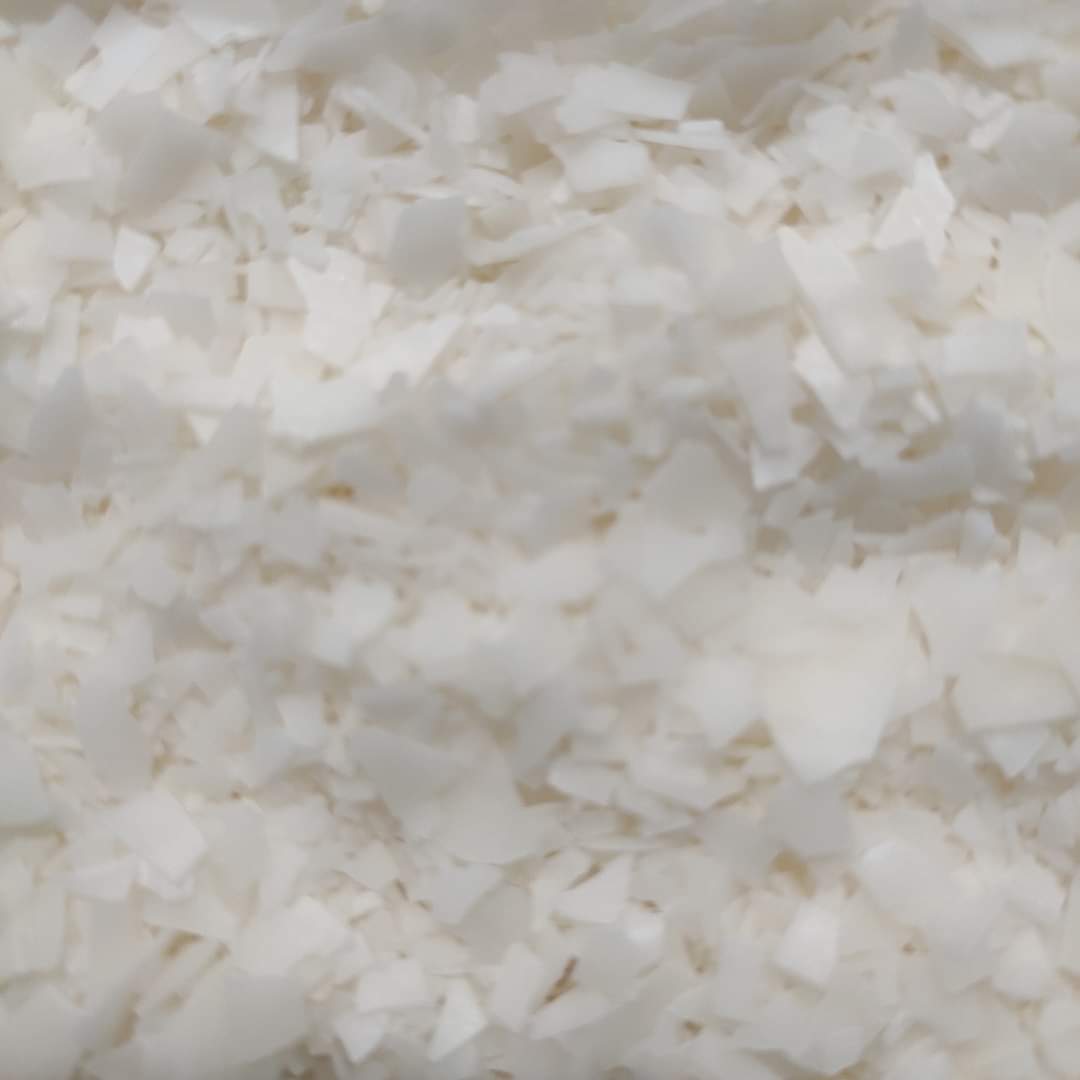
Cationic Softener Flakes
Key Features:
Excellent Softening Properties: Imparts a silky, smooth, and soft feel to textiles, improving fabric texture.Anti-Static Effect: Reduces static build-up, especially useful in synthetic fibers like polyester and nylon.Good Compatibility: Easily compatible with other textile finishing agents and chemicals.Non-Yellowing: Offers non-yellowing performance, making it suitable for white and light-colored fabrics.Dispersible in Water: Easily dispersible in warm water, ensuring ease of preparation and application in production.Typical Benefits:
Enhanced Fabric Softness: Provides a luxurious, smooth hand feel to fabrics, enhancing consumer appeal.Static Control: Minimizes static cling, which is essential for clothing and home textiles made from synthetic fibers.Improved Fabric Drape: Softener flakes improve the drape and handle of fabrics, especially in garments.Durability in Washing: Provides a lasting softening effect even after multiple washes.Moisture Control: Improves the hydrophilic properties of synthetic fabrics, allowing them to wick away moisture better.Improved Sewing Behavior: Softened fabrics are easier to sew and work with, enhancing overall textile processing.Properties:
Physical Form: Flake or granule formIonic Nature: Cationic (positively charged)Solubility: Dispersible in warm waterpH Range: Typically neutral to slightly acidicAppearance: White to pale yellow flakesOdor: Mild, characteristicApplications:
Textile Industry:
- Cotton, Polyester, and Blends: Cationic softener flakes are commonly used in finishing cotton, polyester, and blended fabrics to impart a soft and smooth feel.
- Denim and Knits: Enhances softness and stretchability in denim, knitwear, and woven fabrics.
- Home Textiles: Used for towels, bed linens, and upholstery to improve the softness and comfort of the final product.
Garment Manufacturing:
- Applied during the final finishing process to improve fabric touch and quality.
- Reduces friction between fibers, improving garment wearability.
Leather Treatment:
- Provides a softening and conditioning effect to leather goods, enhancing suppleness without affecting the material’s strength.
Paper Industry:
- Used in tissue and towel paper production to impart softness and flexibility.
Automotive Textiles:
- Applied to seat covers, interior linings, and other fabric-based automotive components to enhance comfort and reduce static buildup.

